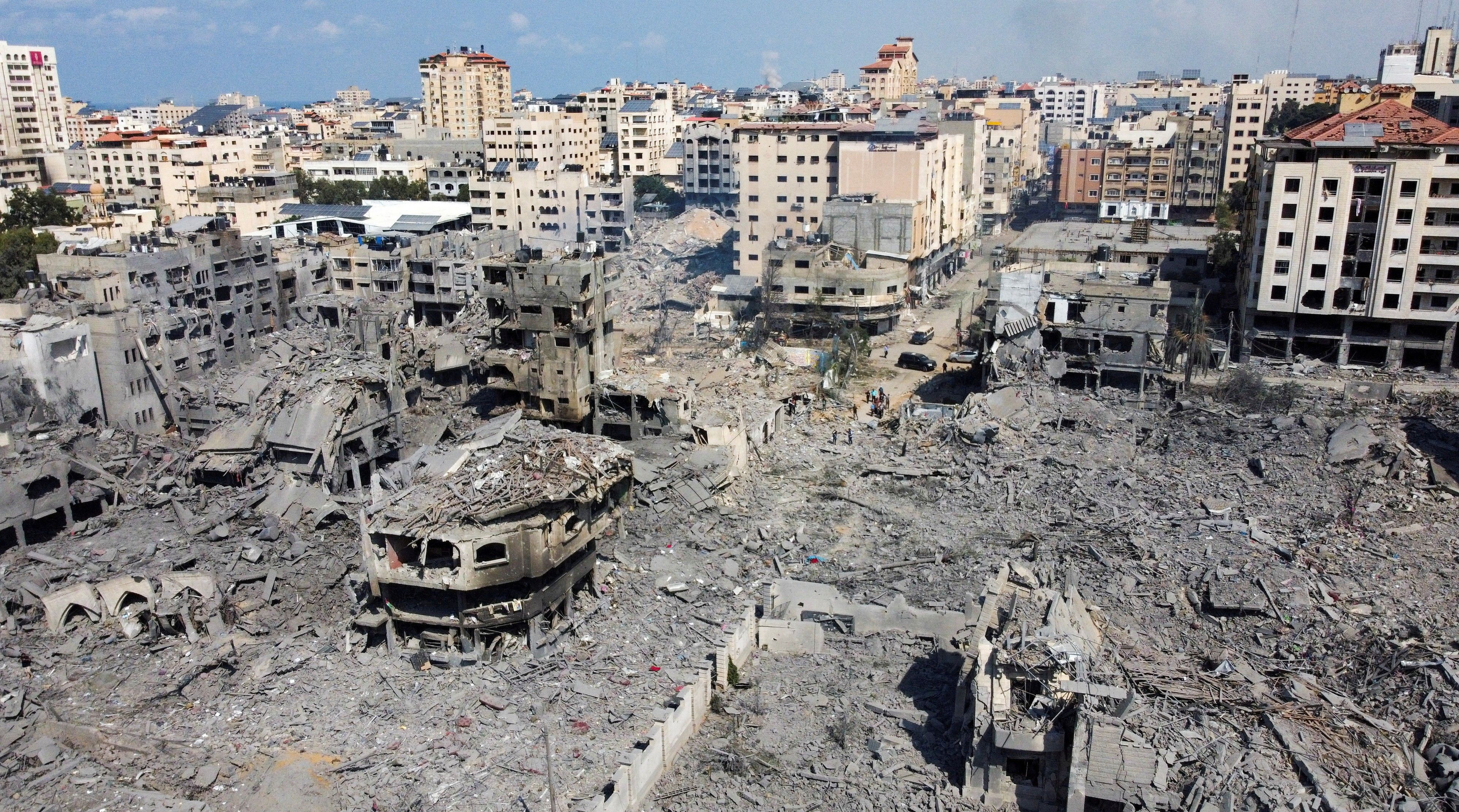Roughly three in four Democrats support a permanent ceasefire in Gaza, according to a new poll from Data for Progress that highlights the sharp divide between the Democratic Party and its supporters as Israel resumes its ground campaign in the war-torn strip. A total of 61% of Americans polled said they were in favor of a ceasefire.
While the Biden administration has signaled that it is concerned about the level of civilian casualties in Gaza, the White House maintains that any sustained pause in fighting would embolden Hamas and enable future attacks against Israel.
The administration’s hard-line position stands in contrast to the growing support for a ceasefire in the House, where roughly half of the Democratic caucus has called for an end to the war. Biden’s policy has, however, earned a better reception in the Senate, with only two Democrats saying they back a ceasefire.
The poll, which surveyed roughly 1,200 likely voters between Nov. 22 and 25, also found that a plurality (49%) of Republican voters support a ceasefire, though that number dropped by more than 10 points when respondents were told that such a move would “keep Hamas in power and allow them to prepare another attack against Israel.”
The survey highlights the political headwinds facing Biden as he continues to publicly back Israel’s assault in Gaza, which has left more than 15,000 Palestinians dead, the majority of whom are women or children.
A coalition of Arab American and Muslim leaders have launched a campaign calling on their supporters to not vote for Biden in the 2024 election. The #AbandonBiden movement, which focuses on swing states with significant Arab or Muslim populations, could have a significant impact on the Democratic president’s reelection chances, according to Shadi Hamid of the Washington Post.
“If the 2024 election is close, Arab and Muslim Americans could be numerous enough to make a difference,” Hamid wrote in a recent column. “If Arab and Muslim voters abstain in unusually large numbers, others might follow suit. Note that 70 percent of young voters of all ethnicities disapprove of Biden’s handling of the war.”
The new poll confirms the finding that Hamid referenced: 63% of respondents under 45 said they support a ceasefire, while only 22% said they were opposed.
Voters also overwhelmingly support the idea that weapons sales to Israel should be conditioned on human rights, according to the survey. That trend is particularly strong among Democrats, 76% of whom say Tel Aviv should only receive weapons if it uses them in accordance with “our standards for human rights.”
The Biden administration, however, has shown little interest in conditioning aid to Israel despite its own policy on arms transfers, which says the U.S. will not give weapons to a country that will “more likely than not” use them to commit serious violations of human rights.
That position has drawn some blowback in the Senate, with Senator Bernie Sanders (I-Vt.) saying that it “would be irresponsible for us to provide an additional $10.1 billion in unconditional military aid that will allow the Netanyahu government to continue its current offensive military approach.” But Sanders’ opposition will likely not be enough to block a funding package for Israel given the broad, bipartisan support that Tel Aviv enjoys in Congress.
When asked which actions the Biden administration should take in response to the war, only 19% of Democrats and 34% of Republicans said the U.S. should prioritize sending weapons to Israel. A slim majority of Democratic respondents said the White House should prioritize diplomatic talks aimed at de-escalating violence and securing the release of hostages.
- Biden refuses to talk 'ceasefire' though it could prevent a regional war ›
- 1200 political scientists call for ceasefire in Gaza ›
- Biden has the leverage to stop the war in Israel - Responsible Statecraft ›
- Biden's Gaza policy risks re-election but pleases big donors | Responsible Statecraft ›
- Poll: Most Americans don't want to send troops to defend Israel | Responsible Statecraft ›
- Biden & Trump take credit for Gaza ceasefire | Responsible Statecraft ›
- Dems stuck in a hole on foreign policy | Responsible Statecraft ›














